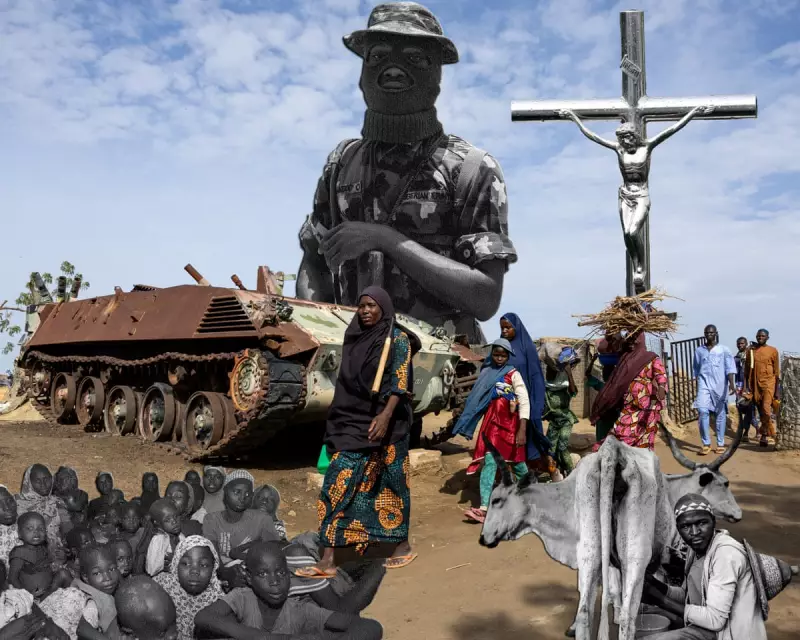
Understanding Nigeria's Labyrinthine Security Crisis
As one Nigerian maxim aptly states: "If they explain Nigeria to you and you understand it, they didn't explain it well enough." This complexity perfectly captures the country's current security emergency, which has grown so severe it recently attracted attention from the US president. The situation represents a tangled web of religious, political and ethnic conflicts that defy simple explanation.
The Reality of Religious Persecution
The crisis gained renewed international attention when more than 300 schoolchildren were kidnapped from a Catholic school in Niger State recently. This incident represents just the latest in escalating violence that has seen hundreds killed in Benue State and a live-streamed terrorist attack on church worshippers in Kwara State.
While international figures like Donald Trump and Nicki Minaj have raised concerns about Christian persecution, the reality is more nuanced. Both Christians and Muslims face violence from extremist groups, particularly in Nigeria's middle belt region where most minorities reside.
West Africa correspondent Eromo Egbejule explains: "The dominant Islamic class, entrenched by the 18th-century Fulani scholar Usman dan Fodio, proposed a much stricter version of Islam, which influenced implementation of Sharia Law in 12 states after Nigeria returned to democracy." Those not adhering to this strict interpretation face displacement and violence.
This religious dimension cannot be separated from broader patterns of marginalisation. Many Nigerian crises essentially concern the marginalisation of political, ethnic and religious minorities, who feel their limited resources are being taken by majority groups or state-backed minorities.
Farmer-Herder Conflicts and Climate Pressures
While Boko Haram's insurgency in the north-east has drawn significant attention, the herder-farmer conflict in the middle belt has been frequently misinterpreted as purely religious warfare. The reality involves complex resource competition exacerbated by environmental factors.
Climate change, desertification and deforestation have forced Fulani herdsmen to travel farther south for grazing lands, while rapid urban development has eliminated traditional herding routes. As Eromo notes: "Abuja used to be part of the big grazing roads in the 1960s, but now it's the capital with malls and complexes where you used to take your cows through."
This resource competition has been weaponised by criminal elements. Herders now possess sophisticated weaponry from unsecured Sahel region stockpiles, creating asymmetric conflicts against Christian farmers often armed only with machetes. With inadequate state policing, the result has been devastating violence and mass casualties.
Governance Failures and Data Challenges
Nigeria's highly centralised government structure has repeatedly failed to address insurgent violence effectively. Abuja maintains all power while numerous ungoverned spaces exist across the country, particularly in forested regions where non-state actors operate freely.
Eromo identifies this as Nigeria's fundamental problem: "Ignoring the minorities and focusing on regime security. It's Nigeria's original sin." The absence of state police and poor intelligence sharing have allowed various armed groups - from ideological criminals to commercial bandits - to flourish.
Compounding these governance failures are significant data deficiencies. "Data is a luxury in Nigeria," Eromo explains, noting that the country doesn't even know its exact population size. Atrocities often go unreported for days until survivors reach areas with network coverage, making the full extent of persecution difficult to ascertain.
The term 'bandits' has become a catch-all description for diverse criminal groups, including non-herder Fulani-speaking criminals exploiting resource conflicts and ethnic stereotypes for financial gain.
No Simple Solutions for Complex Problems
There exists no singular resolution for Nigeria's intricate security challenges. While some Nigerians have called for American intervention, most analysts agree this isn't the answer. However, international attention may pressure the Nigerian government to address the crisis more seriously.
For the ignored minorities experiencing violence firsthand, the nuance of geopolitical analysis matters less than immediate safety concerns. Their embrace of global attention represents a desperate plea for assistance in a crisis that shows no signs of abating.





